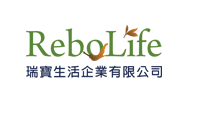
Business for generations
Sponge fishing is an old family profession that has been passed on for generations. It is especially the case on some islands (Kalymnos, Lemnos and Symi) in the eastern Mediterranean Sea (the
Aegean Sea). Divers in the past took great risks while sponge fishing. Nowadays it is conducted by well-equipped professional divers. Apart from tourism, sea sponge trade supports the economy of these islands.
Aegean Sea). Divers in the past took great risks while sponge fishing. Nowadays it is conducted by well-equipped professional divers. Apart from tourism, sea sponge trade supports the economy of these islands.
Kalymnos and surrounding islands were occupied by the Ottoman Empire at this time. Anxious women petition the Turkish sultan to ban the use of standard diving suit. Divers had to skin diving again, profits of sea sponges plummeted. About 4 years later, standard diving suit was used again to revive local economy. Symptoms of decompression sickness reoccurred. As a result, researches were carried out into understanding the impact of a compressed environment (seabed) and decompression (resurface) on divers. Meanwhile, in order to reduce import costs, sponge merchants on Kalymnos built a factory (called Xyth Pio) to produce their own standard diving equipment. So equipment became cheap to purchase, easy to maintain and repair.
The two World Wars in the 20th century caused a massive drop in sea sponge trade. Several Mediterranean islands (such as Kalymnos, Halki and Symi) started to lose many divers. From 1905 onwards, there were about 500 divers departed for Tarpon Springs in Florida. Antonios Lerios, a professional diving helmet maker, left Kalymnos in 1913. Luckily his unique skill got to be passed onto his grandson Nicholas Toth, a master diving helmet maker, whose work can be seen in several maritime museums.
















